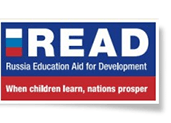Kenglin Lai
Assessment of student learning is essential to improving learning outcomes. While implementing assessments and getting results are the necessary first steps on the journey to improvement, turning those results into real actionable steps is what will actually impact children and their learning. On behalf of the World Bank’s Mongolia education team, on July 15-17, 2019 I attended the “Using standardized assessment results to improve learning: Opportunities for Central America” regional workshop in Guatemala City, Guatemala, hosted by the Ministry of Education of Guatemala. Sponsored by the Russia Education Aid for Development (READ) 2 Trust Fund program, the workshop brought to the forefront the challenges and opportunities for using standardized assessment results by countries in Central America, as well as examples and lessons from successful practices and reforms introduced in other countries in the Latin America and the Caribbean (LAC) region. Given Mongolia’s objective to understand learning gaps in early grades and its commitment to improving the quality of basic education through strengthening the country’s student assessment system, including by conducting high-quality standardized assessments, the workshop provided an important opportunity to draw lessons that could be applied to Mongolia’s context. Here are four key takeaways for Mongolia from the regional workshop in Guatemala:
Discover what these takeaways are here







